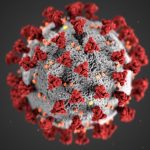Could your smart watch alert you to risk of sudden death?
Researchers have developed an algorithm that could ultimately enable smart watches to alert wearers to potentially deadly changes in their heart rhythm. The research, presented at...
Researchers have developed an algorithm that could ultimately enable smart watches to alert wearers to potentially deadly changes in their heart rhythm. The research, presented at...
As hematologists, we look after many patients who have had blood clots in the past or take blood thinners. They often ask: “should I have the...
High blood pressure, smoking, obesity, heart disease and diabetes are associated with worse outcomes in patients with COVID-19, according to a study published today in European...
How many times have you watched a book adaptation on film or TV, and felt disappointed when a scene wasn’t quite how you’d pictured it? Or...
Access to abortion care is an important and politically charged topic. It is a human rights issue affecting essential aspects of women’s healthcare. As a global...
The revived debate over whether COVID-19 could be the result of an accidental release from the Wuhan Institute of Virology may never be adequately resolved. Either...
Earlier this week, the federal Food and Drug Administration (FDA) approved the use of the drug aducanumab to treat Alzheimer’s disease—making it the first new drug...
Singapore will begin slowly easing a month-long partial lockdown from next week after the curbs succeeded in stemming a coronavirus outbreak, authorities said Thursday.
The World Health Organization (WHO) warned Thursday that vaccination rates in Europe were still far off what was needed to stop a virus resurgence and called...
New research published this week by the Armed Forces charity SSAFA conducted by the University of Bath highlights the positive impact of wellbeing interventions for veterans.






